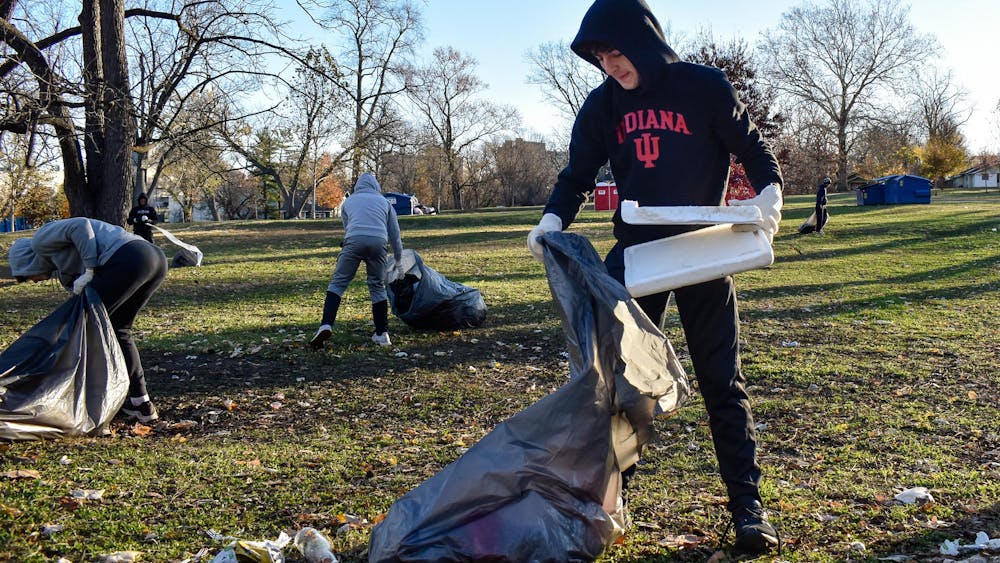The local impact that Sept. 11 has had on the arts in Bloomington is less evident than the national effect but is just as noticeable and important. Many arts organizations report a decline in financial contributions and attribute their losses to the local community's enhanced interest in donating to emergency support agencies for the tragedy. \n"People have been taking a greater influence in the arts and the local community…the increased interest in patriotism influences people to remember that we must remain supporters of the arts," IU Auditorium Interim General Manager Doug Booher said.\nTicket sales, Booher said, were definitely down for the auditorium's first show after Sept. 11, but for all the others thereafter, original attendance projections are being met.\nSept. 11 changed it all. American security lost its credibility, our economy slid further into recession and patriotism flourished.\nPart of the glory in our country's freedom is the right to expression and the leisure of entertainment. Sept. 11 had a significant effect on entertainment and the arts in America on both national and local levels. All of the sudden, the right to expression was limited.\nFollowing the attacks, Broadway theater underwent detrimental financial distress. Movies pending release in September and the following months were retracted on the basis of violent and possibly offensive content. "Spiderman" was sent back to the editing room to sensitize its application of the Twin Towers. And "The Real World: New York" aired a tribute to the city before every episode.\nMany patrons argued that this was necessary.\nThough entertainment, primarily performing arts and theater, has resumed normal business six months after the attacks, the content of the arts now seems to reflect an increased awareness and fondness of freedom, patriotism and the American people as one.\n"Traditionally, artists are charged with the responsibility to speak out to their communities in times of social unrest," read the guidelines for a Bloomington Area Arts Council-sponsored art exhibit with a Sept. 11 theme. "Generations to come will look at the art created out of this tragedy as beacons of hope, intelligence and sensitivity by artists searching and sorting through the 'rubble' of September 11."\nMimi Zweig, director of the IU Summer String Academy, became engaged with her students in a fundraiser that acknowledges depleting funds for the arts. She scheduled a benefit concert for June 18 at Carnegie Recital Hall and will donate the funds raised to a financially suffering arts academy in Harlem, N.Y. Opus 118, the Harlem School of the Arts School for Strings, lost all of its government funding after Sept. 11. Zweig and her students have already raised about $1,500 for Opus 118.\n"The effect (of Sept. 11) has not been good on the arts," Zweig said. "All professional organizations are suffering; they're all scrambling for funds that were diverted to emergency causes. As a donor myself, the question arises: Where am I going to put my resources?"\nZweig remains optimistic regarding the prospects for Bloomington arts in the future.\n"Culture is what defines who we are as people," she said. "We know and understand ancient civilizations through their culture, artifacts and art."\nCharles Railsback, undergraduate advisor of IU's Department of Theatre and Drama, is unsure whether the ripple effect of Sept. 11 can be felt on the arts in Bloomington. He said the emphasis on the economy and its correlation to theater is an important one.\n"Theater is very economically oriented, and this is important to understand," Railsback said. "…The economic effect is always a changing one, and who knows how long this will remain in people's conscious? Concerns about terrorism will continue to affect our art for a long time."\nThe Bloomington Area Arts Council also acknowledges the long-term effects that Sept. 11 will have on the arts in Bloomington. The tragically inspired art exhibition scheduled for this September, "One World View," will allow artists to express feelings of patriotism and nationalism, in addition to pain, grief and recovery from the tragedy.\nThe BAAC is also very involved in a campaign called "One Book, One Bloomington." In correlation with Bloomington's libraries and various city and IU departments, the BAAC is promoting a book that they anticipate all of Bloomington will read.\n"A Lesson Before Dying," by Ernest Gains, is the book. "The goal is to cause people to talk about the book as a means of pulling together the community after 9-11," said Janice Skinner, BAAC Development and Marketing Director.\nThe book discusses diversity, which Skinner said will bring people together. Skinner noted the slight decline in contributions to the arts because of the diversion toward New York. \n"Subsequently, people are realizing that the arts can help people understand what happened. This has made them more cognizant of the arts through local support"
Entertainment funding is down but not out after Sept. 11
Local and national arts recover after attacks
Get stories like this in your inbox
Subscribe





